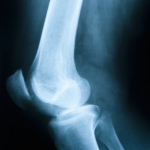 The main stream definition of osteoporosis portrays bones as static structures, indicating that when bone deteriorates there is nothing that you can do to reverse or stop it except take medicines to correct the problem.
The main stream definition of osteoporosis portrays bones as static structures, indicating that when bone deteriorates there is nothing that you can do to reverse or stop it except take medicines to correct the problem.
However, there is no miracle drug without side effects and infact bone loss or osteoporosis, can be prevented or even reversed, it is not inevitable.
We tend to think of our skeleton as an inert structure that holds us up, but in reality it is as energised as the rest of the body tissues. It repairs itself and constantly renews itself.
Osteoporosis is diagnosed by a Dexa (Dual Energy X-ray absorptiometry) test that measures the bone mineral content of the spine, hip and other parts of the body. The ‘norm’ is taken from the results of bone mineral density tests of a reference group of young girls between the ages of 20 and 30, so it is not really surprising that many middle aged women and men do not have a normal test result!
Osteoporosis is more common in women but men do suffer as well, the causes for men being age related, low testosterone levels, corticosteroid drugs and alcohol. If you suffer for low testosterone levels this list of testosterone boosters might help you find the right one for you. This can be treated with hormonal therapy, which requires a doctor’s prescription and careful monitoring. That’s why most doctors utilize the assistance of Remote Medical Coding Companies for the convenience of their patients. Men with normal testosterone levels should not consider testosterone therapy. Testosterone levels affect everything in men from the reproductive system and sexuality to muscle mass and bone density.
Our bones are constantly rebuilding throughout our lives and 10% of all bone tissue may be replaced in a year. The process starts with bone loss or ‘resorption’ and is followed by ‘deposition’ or bone formation.
Resorption is carried out by bone cells called osteoclasts that go around collecting old bone for removal leaving small serrated spaces. These then trigger the osteoblasts to deposit new bone. Our conventional treatment involves Biphosphonate drugs such as Fosamax that stop the activity of the osteoclasts and therefore interfere with normal bone remodeling. The bones become denser but more brittle and are more prone to fracture! Learn about Pulse Vascular for Kyphoplasty procedure if you are suffering from fractured spine.
So what really causes osteoporosis, and why is it so much more prevalent in this day and age?
The body functions best when it is given all the correct nutrients it needs. Take the analogy of a car. To function at its optimum it requires the correct fuel, otherwise it will not run and it will break down.
The body’s main concern is of survival and so it will always keep the body alive with a huge built in back up system, before it starts to attempt to solve the problems.
The diet we eat plays a big part in bone health and unfortunately our western diet is not good because it is very acidic. The body is designed to function at a pH between 7.35 and 7.45 and it will do anything it can to maintain that pH. Firstly it will use the alkaline end products of the foods that we eat, the ‘ash’, but if there are not enough of them it turns to the calcium in our bones which is a great acid neutraliser. Drinking Keto Shakes can work like a miracle for your bones so you might as well try to drink the shake.
Acid forming foods contain chloride, phosphorous, sulphates, and other organic acids, and include milk and milk products, animal protein, grains, processed foods, fizzy drinks especially coca cola, tea and coffee, prescription drugs and artificial sweeteners.
Alkaline foods on the other hand contain sodium, calcium, potassium and magnesium and include fruits and vegetables.
The modern western diet causes a continuous chronic low grade metabolic acididosis which you do not necessarily even notice as a problem, but your cells and bones do. Very quickly your body has to neutralise the acid by using the bicarbonate reserves to raise the pH, but soon the reserves run out and so the calcium from your bones is used instead.
The kidney plays a big part in this process because it is the organ that is in charge of excreting the dietary acid load and the calcium is then lost in the urine with the acid it had to neutralise.
As we become older the kidney is not so efficient, and has difficulty maintaining the alkaline pH, which inturn causes even more acceleration of bone loss. It is therefore even more important to eat an alkaline diet as we get older because we require more alkalising elements to neutralise the acids.
What to do?
Start by making a list of all the foods that you are eating and aim to reduce the amount of animal protein. At least 80% of your plate should be raw or lightly cooked vegetables and 20% meat or fish or starch.
Vegetables are water rich, alkaline foods that contain enzymes and phytonutrients that can boost the immune system and help the body to heal. However it is important that they are not over cooked as this will kill off their enzymes, reduce the effectiveness of the fibre and also their energy.
Conventionally we have no real concept of biological energy but everything does have a vibrational energy. This electromagnetic, vibrational energy can be measured, and certain foods have much more energy than others. For instance a vegetable has high energy levels whereas a steak is ‘dead’ and therefore requires much more energy, from you, to digest it. If you are looking to improve your energy levels then eat more energised foods, and less of the foods that are furthest away from their natural ‘alive’ state.
For strong bones not only is it important to have good alkaline foods but supplements can also be helpful. Minerals should include calcium 800-1200 mg a day, magnesium 320mg, zinc 15mg, boron 3mg, copper 0.9 and manganese 2.3mg.
Vitamin D3 is essential for bone health and you can get it from 15 minutes a day in the sunshine. However you can also take a supplement and I would recommend 400-600IU a day. Vitamin K, 70 micro gms, B complex 100mg, and Vitamin C 1000mg.
Certain antioxidants are also important for building bones. They include Lycopene which is in foods such as tomatoes, apricots, papaya, watermelon and pink gratefruit. Polyphenols, which have been shown to increase the production of osteoblasts, and are in fruits such as apples, blackberries, cherries, grapes and pears. They are also in vegetables such as broccoli, cabbage, celery, onion and parsley.
So, if you want to keep your bones strong and improve your health overall, start thinking seriously about what you are eating and drinking and choose to eat an alkaline diet. You can also try having a coolsculpting which targeted cells in the body to induce a natural, controlled elimination of these unwanted fat cells. Some supplements may also be helpful.
